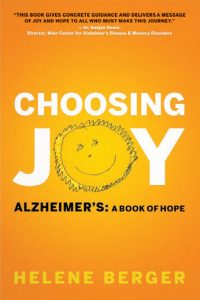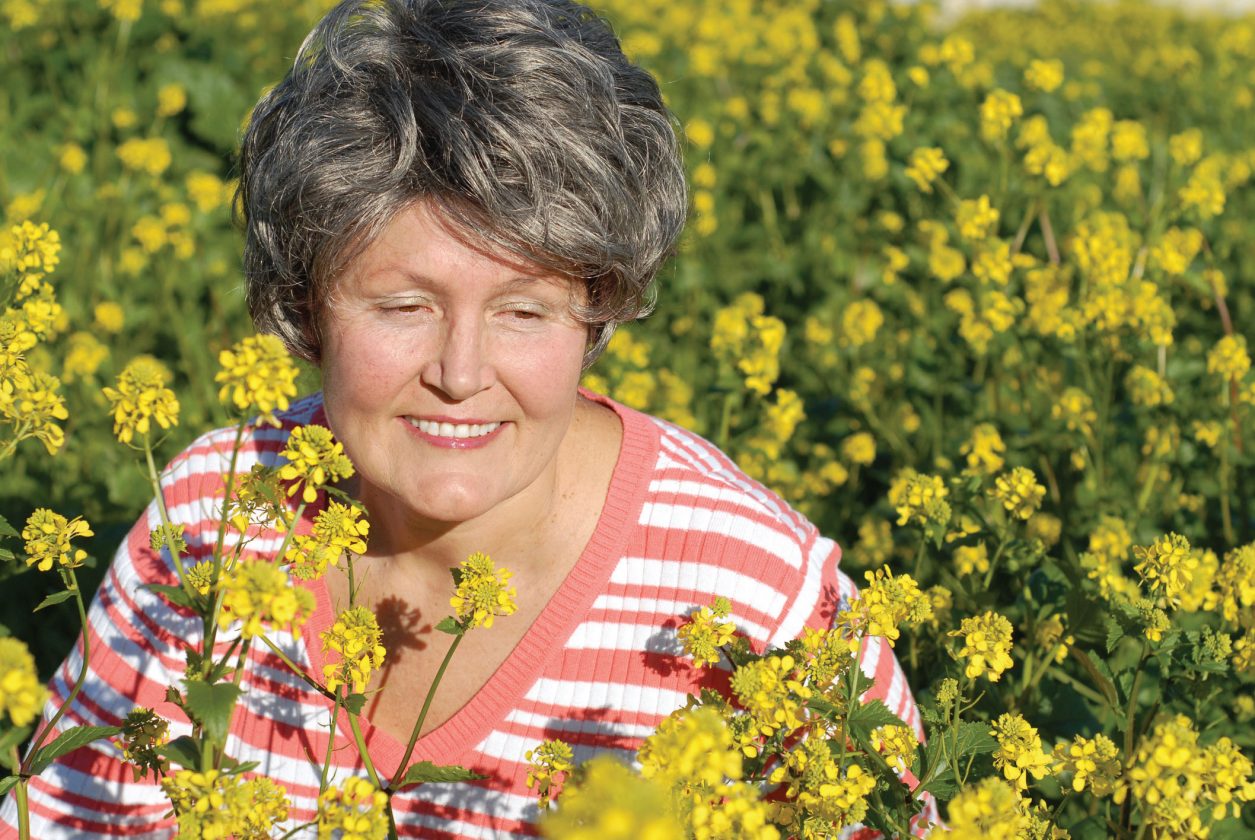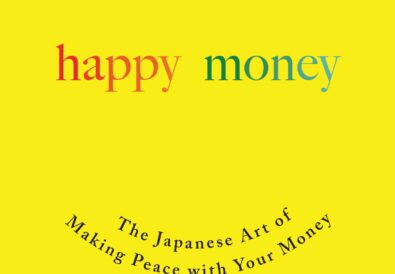When giving your all in the sacred role of caring for a loved one, an essential piece is often missing from the equation: YOU! You cannot stop living your life. It will not be good for you, and it will certainly not be good for your loved one. The moment you feel trapped, a host of other negative qualities and unhealthy emotions— resentment, anger, impatience, irritability— will begin to creep in.
When my husband was diagnosed with Alzheimer’s shortly after our fiftieth anniversary, I was determined to find creative ways to make our lives as fulfilling as possible for as long as possible. One of the essential lessons I learned, was that I needed to be whole in order to give him the best.
Here are ten suggestions to help you put your own needs into the picture when the role of caring for a parent, a spouse, or any loved one becomes your responsibility—no matter what the reason for the decline.
1. Essential to have Capable Help
Most of us find difficulty in recognizing or accepting our need for help. Yet from the dawn of history, man has clustered in tribes or communal groups in order to survive. In our increasingly isolated society, we have difficulty recognizing that at some point in our lives we will need backup. We simply cannot manage without it. What would happen, when you are the sole provider for your loved one’s needs, if you had a fall or an injury or illness that put you in the hospital? Though my husband, Ady, was diagnosed with Alzheimer’s, I did not have extra help until 3 ½ years later when he fell and broke his hip. In retrospect, not having the help during those early years was a mistake. My husband made the greatest strides when I had a few hours of relief each day to do errands or to have time for a walk or a game of tennis. I returned refreshed and ready to give my all. Finding either an aide, friend or family member or even a responsible student to play cards or checkers or chess, enabled me to continue to live as fully as possible under the circumstances—and to deliver better care.
2. Finding Time Alone
One day a wise doctor asked me, “How much alone time do you give yourself each day?” My response was, “Very little.” I was caring for my husband from morning to night. Even if I managed to go for a walk, it was almost never alone. When I drove I was usually listening to a book on tape. Eventually, I realized that I had to give myself time to grieve for the loss I was living through. I could not shut out the reality I was facing by filling my mind every minute with extraneous thoughts. Slowly, I learned to walk alone without a friend or a book on tape. My thoughts, instead of being an escape from the reality, turned to questioning how can I keep my husband on a positive path? How can I make life better for him and for us? How can I build the scaffolding to give him the best chance for positive outcomes – physically, emotionally, and socially?
3. Focusing on What’s Best for You, Not on What Others May Think
Learning to do what was best for me and for Ady without being concerned about what others might think was an important step for me. At first, I thought that I’d be judged harshly if I went to an event that was not appropriate for Ady, without him. To my surprise, I kept getting positive feedback. Friends kept telling me how well they thought I was handling the situation. Their encouragement helped me to get over my both my feelings of guilt and fear of “what others might think” and reinforced my decision to live more fully. I brought Ady into the picture, by helping him to understand that taking care of my own needs (even if just a walk) was crucial for both of us.
4. Getting Enough Sleep
Getting seven to eight hours of sleep a night was always particularly tough for me. I was compulsive about accomplishing my agenda before I went to sleep. Our son, witnessing my fatigue, said, “Mom, I’m giving you a curfew. I want you to turn off your computer at 9:00 pm no matter how important what you’re working on is. Get ready for bed and relax and read for a while.” It turned into one of the adjustments that enabled me to give more of myself to my husband.
5. Maintaining Adult Conversation with Friends
There is an unavoidable sadness in losing the rich adult conversation that had been such a big part of my life with Ady. But I couldn’t let my life shrink to games and puzzles. Continuing to spend time with friends, who were involved and interesting people, became important to me. It gave balance to my life. Even limited time with friends, or going to a cultural event, snapped me back into the adult world that had been my life. Being with people who saw humor in life and made me laugh gave me new awareness of the healing power of laughter. More importantly, I returned home fulfilled and eager to give my all to my husband.
6. Acknowledging Your Own Feelings
My daily goal was to find the delicate balance between watching my husband decline while attempting to stay whole. Outwardly I went through the motions, but the harsh decree of Alzheimer’s brings with it an inner sadness that never entirely goes away. Despite my many expressions of satisfaction, there were difficult moments of coming to terms with reality. There were times that I allowed myself to face my feelings—times that wiped me out but were vital to my own well-being. I found it extremely helpful to be able to verbalize my feelings to my family or close friends. Just being able to acknowledge them in words, either verbal or written, helped to minimize the sting and intensity. I found that keeping even a sporadic journal brought comfort. Once something is expressed, it doesn’t appear to be quite so ominous.
7. Understanding Finances: A Word to Women
I know many bright women who have contributed substantially to the world, some with advanced degrees or qualifications, who close their minds when it comes to understanding financial matters. These bright women have told me, “My husband handles the finances.” I was one of those women. Long before the onslaught of Alzheimer’s, I woke up one day and realized that I had virtually zero financial knowledge—even of our own affairs. My husband, knowing he would soon be retiring, was totally supportive of my desire to learn. We both met with a number of financial institutions and I was not embarrassed to ask the most rudimentary questions until I felt that I understood their responses. After Ady’s diagnosis with Alzheimer’s, he began to hand over the financial reins to me confident that over the past years I had gained enough knowledge to handle what lay ahead. I was spared the additional shock after his passing of being financially unprepared. None of us can predict when a life-changing event will occur. We owe it to ourselves and our family to be prepared.
8. Learning from Others
In the early stages, before Ady’s diagnosis, I did not acknowledge my fears to friends. One night at dinner with another couple. Ady asked the husband what he did. The man was well known for his books and expertise in his field. I gasped and rushed in to rescue him. His wife tenderly took my hand and said, “Helene, Everybody loves Ady for Ady. Don’t try to cover for him.” I fought back the tears. But that moment changed me. Publicly acknowledging what Ady and I were experiencing, rather than treating it as embarrassing and shameful, gave me enormous relief. It opened up new worlds of communication for me, enabling me to learn from others’ experience. Though our reluctance to openly acknowledge our new reality is understandable, it burdens us with an unnecessary level of sadness and pain. Just as important, we would have lost out on the wise counsel and compassion that friends can offer. In two six-word sentences, my friend’s honesty and compassion changed my life. I will always be grateful to her. Through the next six years after the diagnosis, I constantly learned from those who were dealing with loved ones who are declining in any way. When I asked questions, I found people most willing to respond with both valuable information and openness about their feelings.
9. Be Clear About Your Priorities
You cannot do it all. Make conscious choices about your priorities. My nature is to be compulsive about doing any task I undertake well and thoroughly. My well ordered home changed during my caregiving years. There were medical charts and equipment that took over the house. Ady’s office was the first to go. There were piles of folders that he simply would not put away, and his desk was sky-high with papers. It seemed as though if an item was out of sight, it was lost to his mind. Even my own office was not what it had been. It was more important to me to use any spare minute I had to exercise and do what was necessary for my own health than to be upset about a messy room. This didn’t happen haphazardly. It was a conscious decision on my part to let the nonessentials go. No matter what stage of life we are in, I suspect every one of us would benefit from letting some things go undone.
10. Put Your Own Oxygen Mask On First
Remind yourself how important your role as caregiver is and how lost your loved one would be without you steering the ship. When you take the time to nourish yourself, try to banish the guilt that is not helpful. Airlines instruct us to take care of ourself first, so you can be there to help another. It is crucial to the well-being of both you and your loved one that you give yourself the same permission.
I am happy to report that as a result of giving myself the balance I needed, my husband thrived as well.
When I returned from a walk or whatever gave me a break, I spent quality time with him. In his final years, he was able to do what was unthinkable during the early years. His mind was kept active every waking minute. He was treated with kindness, respect, support and love. When he was first diagnosed with Alzheimer’s, he calmly said to the doctor, “I don’t want to live anymore.” In the years that followed he was known to all as the man with the radiant smile.

 Helene Berger, author of Choosing Joy: Alzheimer’s: A Book of Hope, has held many leadership positions in her home community and nationally. She has spoken throughout the country. This, her first book, was inspired by the unanticipated positive results her husband achieved after his diagnosis of Alzheimer’s. For more information visit www.heleneberger.com.
Helene Berger, author of Choosing Joy: Alzheimer’s: A Book of Hope, has held many leadership positions in her home community and nationally. She has spoken throughout the country. This, her first book, was inspired by the unanticipated positive results her husband achieved after his diagnosis of Alzheimer’s. For more information visit www.heleneberger.com.




















